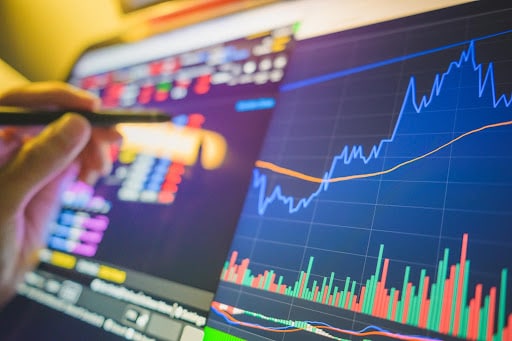
The primary objective of your forex broker is to make money, and the last thing your broker wants to do is absorb losses in excess of your account balance. Regulators also have concerns in this area and have moved in recent years to strengthen their rules related to margin, its availability, and when open positions must be closed automatically, an event termed being stopped out.
As a retail forex trader, a margin call is the last thing you would want to receive, as well, nor would you ever want to have your positions closed without your ability to keep winners running. Monitoring the profit/loss reality of your portfolio positions, however, is your personal responsibility. You need not be glued to your trading screen to avoid a margin call or being stopped out, but you can employ prudent risk management techniques to prevent them.
In this article, you will learn more about margin and leverage, what a margin call in forex is, an example of how the math works during this process, what a stop out level is, and how to avoid margin calls and stop outs from occurring. Lastly, we will provide a list of the safest forex brokers available, each of which can provide the tools and resources to prevent dreaded margin calls and stop outs.
A Quick Refresher on Margin and Leverage
An emergency call or message from your forex broker can never be a good thing. It is both a warning that you are losing money, but also that you are approaching levels where drastic action may have to be applied to your open positions without your input. If you reach your margin level, then you can always liquidate a few positions or add more capital to your account balance to remedy emergencies. The forex market can be volatile, and you must be prepared.
Newcomers to forex may have heard of buying on the margin in stock markets, but the world of foreign exchange has a few different twists of its own. In the forex arena, you may use leverage, the act of borrowing funds from your broker, to magnify your position in the market. On a good day, it can maximize your profits, but it can expand your losses, as well, and it will always increase your trading costs from spreads or commissions. Margin is the same concept.
There is a lot of confusion with related terminology, which is unfortunate, but a beginner and seasoned trader need to understand anything that pertains to the use of margin or leverage, as defined by your broker. You will encounter such phrases as free margin, margin call, margin call level, floating profit and loss, stop out, and stop out level, which may even be referred to as a margin closeout value, minimum required margin or liquidation margin.
What is a Margin Call?
Your forex broker is more concerned about controlling your risk in the forex market than you might think. In order to make money in its business, a broker must manage its risk exposures at all times. One way of doing this is by establishing specific percentage levels, related to the available free equity in your account, which represent signals when action must be taken.
For example, if you have a leveraged position of $100,000 in the market, he may have a 1% margin requirement, or equivalent to $1,000 of equity in your trading account. Margin levels vary by broker and by instrument. They may also be tiered in a way that reflects your exposure and risk at the time. Gains and losses can impact these free equity funds.
These free equity funds are his and your cushion before more drastic events must take place. Think of these various levels as speed bumps before a stop sign. You are warned to slow down and take note of what is approaching going forward. When the level of this cushion is compromised, you will receive the dreaded forex margin call – an alert that you must add funds or close open positions at your own discretion. No new positions may be opened, as well.
If you do not take action and your net floating profit and loss position worsens, at some point determined by your broker, your positions will be closed until you are no longer beneath the required margin level. Typically, the largest losses are liquidated first, but your fate is open to whatever the broker’s trading platform enforces according to your trading agreement.
An Example Margin Call
Let’s review an example to illustrate how these various terms come into play. Assume for the moment that you have invested $2,000 in your account. Without any open trades, this account balance represents the equity in your account. Here are a few mathematical equations that will illustrate what is a margin call in forex and how is it triggered:
Equity = $2,000 + Floating Profit and Loss
Before any trades are opened, the Floating P/L will be zero. Let’s assume you open a leveraged position of $100,000 with a specified margin requirement of 1%. Now we have:
Equity = Margin used of $1,000 + Free or Usable Margin + Floating P/L
Let’s also assume your broker has a Margin Call Level of 100%. This figure specifies that your equity position be maintained above this percentage or a call will be in order or:
Margin Level = (Equity / Used Margin) X 100%
What happens when the market moves against you, and your Floating P/L wipes out your Free Margin? Here is the math, as follows:
Equity = Used Margin of $1,000 + $1,000 – $1,000 = $1,000, which translates to:
Margin level = ($1,000/$1,000) X 100% = 100%
You have reached your Margin Call Level. You may not open new positions. You must add funds or liquidate positions until your Margin Level rises above 100%.
Must a trader maintain these equations in his head in real-time? Such is not the case. Your broker wants you to be aware of your margin positioning at all times. On MT4 or other trading platforms, there is a section that lists all open trades. A summary tells you directly your account balance, your equity balance, free margin, and used margin. As long as the free margin figure is positive, no margin call will be made, but it is best to maintain an acceptable cushion.
What is The Stop Out Level?
After a margin call occurs and losses continue to mount up, you might reach another specified level, the Stop Out Level. If breached, the broker will liquidate your positions for you to prevent further losses. Your trading agreement will explain how this process works, which trades may be closed, and what your options might be. Once this process starts, however, you will not be able to stop it.
Typically, a broker will close the position with the greatest unrealized loss and proceed in like fashion until the problem is resolved. It could happen that all of your positions will be closed, per your agreement. In other words, you do not want to ever reach a Stop Out level, unless you want to cry a river over bad luck.
How to Avoid Margin Calls and Stop Outs
At the end of the day, you and you alone are the responsible party for maintaining the proper margin levels required for your open positions in the market. Your trading platform will provide the tools for monitoring your risk exposure and margin levels, but you must act quickly if a problem ensues. You may reduce your leverage, add funds to your account, liquidate offending positions, or ensure that Free Margin figures remain appropriately positive.
How can this situation occur when safeguards like stop-loss orders are used? Under normal market conditions, a stop-loss will protect your downside and your Floating P/L, but these orders are not guaranteed when the market becomes chaotic, as specified in your trading agreement. Some brokers today will provide a guaranteed stop-loss order for a fee, but not all.
You are also asking for trouble by trading without a stop loss or by removing a stop loss for an outstanding trade. Beginners often do the latter, thinking they are correct and that the market will reverse itself. This behaviour invites a disaster at every turn. Remove protection at your own peril.
Related Articles
- What are Leverage and Margin in Forex Trading?
- What are Forex Pips, Lots, Margin and Leverage?
- Trading Forex with High Leverage
Safe Forex Brokers
Are you looking for a safe, dependable forex broker? We continually canvass and review the forex brokerage industry to determine the best. Here is our latest list of favourites:
– Regulated by FCA, FSCA, CMA and FSC – 40% New Member Bonus – Flexible leverage up to 500:1 – CySEC, FCA, FSCA, SCB Regulated
Broker
Features Min Deposit EURUSD Spread
![]()
 Your capital is at risk
US Clients: No Regulated : Yes
Your capital is at risk
US Clients: No Regulated : Yes
– Over 1M Registered Accounts
– More than 250 Trading Instruments
– MT4, MT5 and Web Trader Platforms
– No dealing desk
– Crypto-trading only avail. for Exinity Limited.$200 ECN 0.1, Standard 1.6
 Your capital is at risk
US Clients: No Regulated : Yes
Your capital is at risk
US Clients: No Regulated : Yes
– MIFID, ASIC, FSA & FSCA regulated
– Free Online Trading Coach$100 Fixed
 Between 74-89 % of retail investor accounts lose money when trading CFDs
US Clients: No Regulated : Yes
Between 74-89 % of retail investor accounts lose money when trading CFDs
US Clients: No Regulated : Yes
$200 NDD 0.09 / Standard 0.69
 * 82% of retail investor accounts lose money when trading CFDs with this provider. You should consider whether you can afford to take the high risk of losing your money
US Clients: No Regulated : Yes
* 82% of retail investor accounts lose money when trading CFDs with this provider. You should consider whether you can afford to take the high risk of losing your money
US Clients: No Regulated : Yes
100GBP/AUD/EUR/USD variable
 Your capital is at risk
US Clients: No Regulated : Yes
Your capital is at risk
US Clients: No Regulated : Yes
– Multi award-winning New Zealand broker
– Institutional-grade spreads from 0.1 pips$200 From 0.1
 Your capital is at risk
US Clients: No Regulated : Yes
Your capital is at risk
US Clients: No Regulated : Yes
$50 0.02
 61% of retail CFD accounts lose money
US Clients: No Regulated : Yes
61% of retail CFD accounts lose money
US Clients: No Regulated : Yes
$50 (varying by Country) from 1
 Your capital is at risk
US Clients: No Regulated : Yes
Your capital is at risk
US Clients: No Regulated : Yes
$5 From 0.0 pips
 Your capital is at risk
US Clients: No Regulated : Yes
Your capital is at risk
US Clients: No Regulated : Yes
– MetaTrader4 , MetaTrader5, cTrader, FxPro SuperTrader
– 15+ Years in business
– 90+ International Awards$100
Concluding Remarks
One of the worst trading situations imaginable is to receive the dreaded margin call from your broker. It is an alert that you are losing significantly in the market and that you failed to do anything about it. Margin levels are meant to protect you from further losses, and you can remain in control, as long as you maintain free margin in your account.
Your trading platform will keep you abreast of your margin positions. Learn how to access this information and read the related details in your trading agreement to be fully informed. It is your responsibility to adhere to these restrictions or face unwanted consequences.